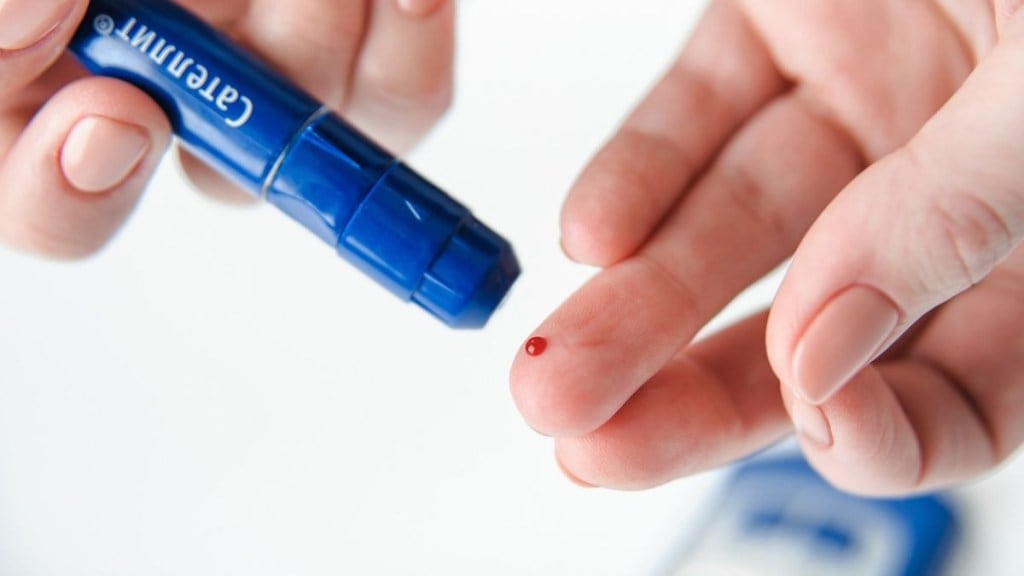Once considered a disease of those over 40, diabetes is now increasingly affecting young adults in their 20s. Early-onset diabetes can be deadlier than the late onset disease, as it puts one at risk of severe complications, increasing the risk of death. Risk factors could range from stress, pollution, sedentary lifestyle, not sleeping enough to wrong eating habits.
The rise in diabetes cases in India is concerning. The country is home to 101 million people with diabetes, a study published in the reputed medical journal the Lancet noted.
Why young people suffer more from diabetes
The longer one has diabetes, and the less controlled the blood sugar is, the higher the risk of complications, according to Mayo Clinic. Young adults who are diagnosed with diabetes are thus at risk of developing complications that may be disabling or even life-threatening. Diabetes can cause heart disease, nerve damage, kidney problems, eye issues, skin and mouth conditions, and even Alzheimer’s disease. A study published in the World Journal of Diabetes noted that the risk of developing Alzheimer’s disease was 65% higher in persons with diabetes than in non-diabetic.
According to the National Institutes of Health, people who are more obese, lead a sedentary lifestyle, have a strong family history of Type 2 diabetes mellitus, are of black and minority ethnic (BME) origin and come from a less affluent socioeconomic group are at greater risk of getting diabetes.
Dr. V. Mohan, Chairman of Dr. Mohan’s Diabetes Specialties Centre notes that in recent days, diabetes among young people is rising at an alarming rate.
No movement, wrong food
Many young people are spending excessive time in front of screens and consuming junk food. This deadly combination of physical inactivity and increased calorie intake can significantly raise the risk of developing type 2 diabetes. Sedentary lifestyle combined with an unhealthy diet is a major cause of obesity among young adults, which is also one of the significant risk factors for type 2 diabetes.
Genetics
Dr Mohan says Indians are genetically more prone to becoming diabetic. This is also a reason for young individuals affected by diabetes.
Urbanisation
Modern technologies have made the young people physically inactive and the introduction of westernised foods has increased the consumption of processed and ultra-processed foods, says Dr Mohan. A study published in International Journal of Health Geographics says that urbanization in India is linked to increased consumption of energy-rich foods and a decrease in energy expenditure. This is leading to increase in obesity and heightened risk of developing type 2 diabetes mellitus and other cardiometabolic conditions.
Stress
Chronic stress is an important contributor for diabetes, as stress disrupts insulin regulation. A study published in the journal Cureus highlights how Type 2 diabetes may be initiated by psychological and physical stress. ” The release of catecholamines and a rise in serum glucocorticoid concentrations caused by psychological stress enhance the requirement for insulin and insulin resistance,” says the study.
Lack of sleep
Not sleeping enough over a period of time can trigger diabetes in young people. Sleep deprivation impairs glucose metabolism. A study published in Cureus points out that short sleepers had greater levels of circulating insulin during fasting, fasting glucose, and homeostatic model assessment for insulin resistance (HOMA-IR). Insufficient sleep and poor sleep hygiene were linked to increased glycated hemoglobin (HbA1c) levels.
Junk food consumption
The consumption of ultra-processed foods has been on rise in India. The trend may add to the existing obesity crisis in the country which can lead to other chronic diseases too. Consuming junk foods may result in high calories and high fats. Besides, the junk foods like pizza, burger, and samosa, also lack vital nutrients like vitamins, minerals and protein.
Lack of awareness
Leading a fast-paced life with their own set of priorities, many young people are very negligent about their health, as per Dr Mohan. “They tend to ignore even if they experience any abnormal symptoms,” says the expert.
Screen time
Excessive use of gadgets can promote sedentary lifestyle which could raise risk of diabetes. Use of mobile phones, TV and other gadgets made the young people physically inactive.
Environmental Factors
Studies have shown that pollution is related to the risks of diabetes. A study published in Environmental Research has noted an increasing incidence of type 2 diabetes in regions exposed to high levels of air pollution.
Delaying periodic check-up
Delaying or avoiding periodic health check-ups is major cause of missing to identify prediabetes in young individuals. Creating awareness and educating young people about healthy eating, exercise, and regular check-ups is critical to prevent this epidemic, says Dr Mohan.
